A Dundee mum has overcome organ removal, surgical menopause and chemotherapy in her inspiring bowel cancer battle.
Rachel Ferguson thought she was suffering from stress when she booked a GP appointment back in 2018.
But after the GP’s tests confirmed bowel cancer, her world was turned upside down, sending her on a journey that would see many of her internal organs removed and multiple rounds of chemotherapy.
She is speaking to us now because she wants to raise awareness of the symptoms of bowel cancer and to highlight the importance of early detection.
The clinical support worker for NHS Scotland revealed she was diagnosed almost five years ago and explained what her early symptoms were.
What were Rachel’s symptoms?
The 42-year-old said: “I had a change in bowel habit, which was mainly constipation, and some bleeding on and off.
“One of the other symptoms I had was pencil-thin stools – which I didn’t know at the time – but it meant the tumour was in the way.
“It was like the stool had been piped out an icing bag.
“This is something people might ignore but it was the main thing which alerted my GP that something wasn’t right.”
Her symptoms continued for two or three weeks before she decided to go to her doctor for medication to help regulate her bowel movements.
At the time Rachel put the changes down to stress at work.
The Dundee mum continued: “I didn’t think there was anything untoward at all.
“I just put it down to work stress, but I made an appointment with my GP – Dr Aditya Gupta at Princes Street surgery – to discuss my symptoms.
“He wanted to do a full examination straight away but I was reluctant so I asked if I could try stool softening medication first.
“But he told me to come straight back if my symptoms continued.”
The mum-of-three went back to her GP a couple of months later because her symptoms were still there.
Rachel’s GP insisted on full examination
“My GP was amazing and he insisted on a full examination this time and a bowel screening test.
“He felt something wasn’t right immediately, although he didn’t tell me at the time.” she explained.
“I was referred for a colonoscopy and had this done within three weeks on September 17, 2018.”
Rachel explained that she opted to stay awake during the procedure and was offered gas and air.
“You are laid on your side on the hospital bed and there are two or three screens so you can watch it happening.
“The female doctor put the scope into the very end of my bowel and it was on the way out I could see the tumour right at my rectum.
“It was like a big piece of cauliflower.
“As I have a bit of medical knowledge, I knew immediately what it was and I watched her take the biopsies.
“She then wrote her report and at the bottom of it she put ‘looks like a rectal cancer’.
“I went into a wee room with the specialist nurses and got the results there and then.
Rachel’s treatment and operations for bowel cancer
“I was shocked and never suspected anything like this. It was devastating.”
She had her first round of chemotherapy in January 2019.
The first eight rounds she had of treatment took place between January and March 2019.
And the second eight rounds happened between September and December 2020.
She also went on to have a section of her bowel removed on November 5, 2018 and part of her liver taken out on February 13, 2021 – due to spread from the original bowel cancer.
But the most difficult surgery was a posterior pelvic exenteration.
Rachel underwent this surgery in September 2021.
This involved most of her bowel being removed along with her uterus, ovaries, cervix, omentum, and her appendix.
She said it was recommended she have the operation: “They take out the organs in the pelvis that you don’t need.
“The surgeon said I didn’t need my appendix, cervix and ovaries so they took them all out and checked them.
“But none of them were cancerous in the end which was good.
“It was hideous having this done though. I knew I would go straight into surgical menopause which was a shocker.
“It happened right in the middle of Covid so I had to go into hospital without any support because no-one was allowed to be there.
“The recovery was tough and I was in hospital for a few weeks. The menopause was the worst and it kicked in straight away – before I had even left hospital.
“It was grim.”
Further surgery at Ninewells in Dundee
She also had ileostomy reversal surgery in 2020 – a reversal procedure involves closing the openings so the bowel can be put back into the tummy.
After a reversal it means you can pass stools from your bottom and will no longer need a stoma bag.
But due to having difficulties with her bowels, Rachel later asked for a permanent colostomy bag which has proved to be the best move for her.
Rachel’s last operation was having her spleen removed in November last year.
The surgeries took place at Ninewells Hospital in Dundee.
Rachel now has check-ups and CT scans every three months.
And she is glad she was quick in getting her symptoms checked out when they started to appear.
Importance of bowel cancer awareness
Because of her experience, Rachel feels passionate about raising awareness of bowel cancer and the symptoms.
She said: “Raising awareness is so very important as bowel cancer is treatable.
“It can be completely curable if it’s caught early.
“Always, always, always check your poo and attend all bowel screening invites.
“Check yourself regularly and if anything doesn’t seem right, or there’s pain, or lumps somewhere – tell someone.
“See a doctor and don’t give up until it’s been checked to your satisfaction.
Having the support of friends and family
“I credit my GP with saving my life along with my fantastic team at Ninewells, including my surgeon Mr Polignano.”
Rachel added that having the support of her family and friends helps her to be positive.
“I have a wonderful husband, Andrew, three beautiful girls, Kayleigh, Emily, and Charlotte, and three amazing grandchildren – Jamie, Sophia, and Alyssa.
“Between them all, they help me stay focused on living life, and trying to find ways to laugh every day!
“I also have the most fantastic friends, who have been by my side every single step of the way, and brilliant, supportive colleagues.
“I couldn’t have done it without any of them.”
Talking openly about bowel cancer
Genevieve Edwards, chief executive of Bowel Cancer UK, said: “We’re really proud of Rachel for being so open about her experience of bowel cancer and her determination to help raise awareness.
“While bowel cancer is more common in people over 50, it can affect people of all ages.
“Every year more than 2,600 people under 50 are diagnosed with the disease in the UK, but awareness that it can affect younger people remains low.
“Talking openly about the disease and its symptoms really can help save lives.”
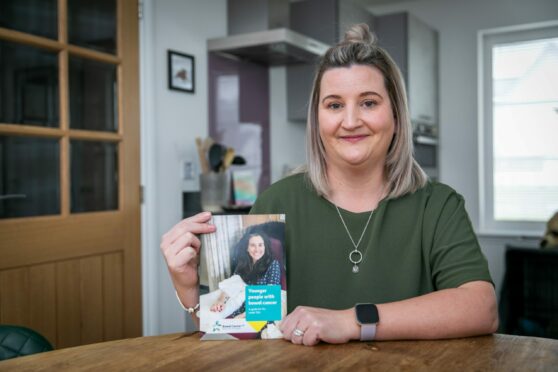
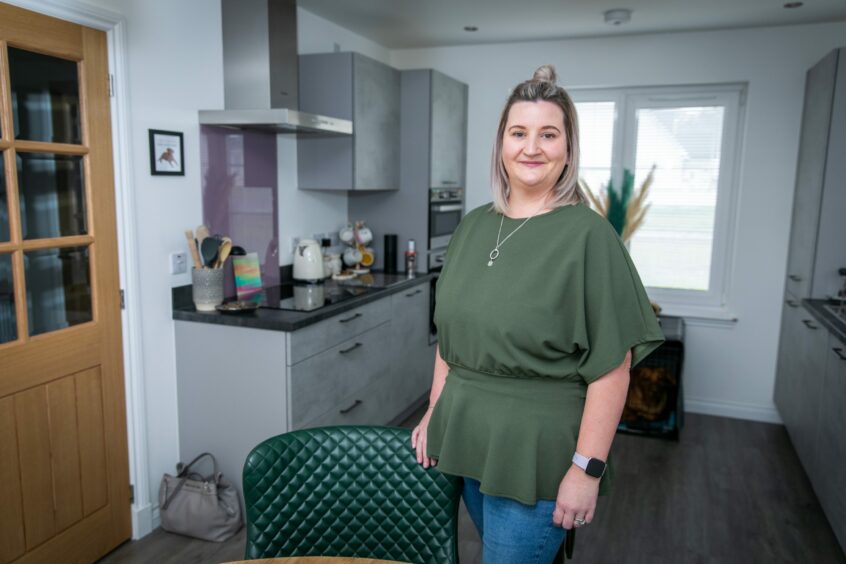
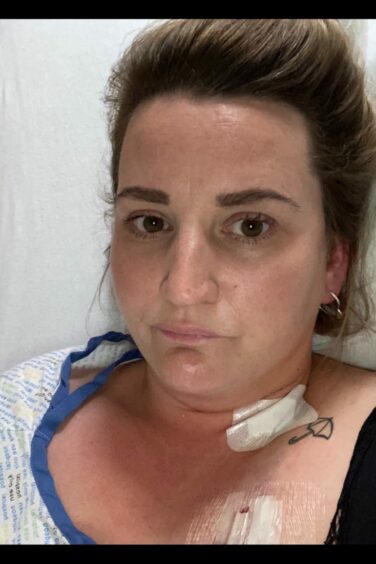
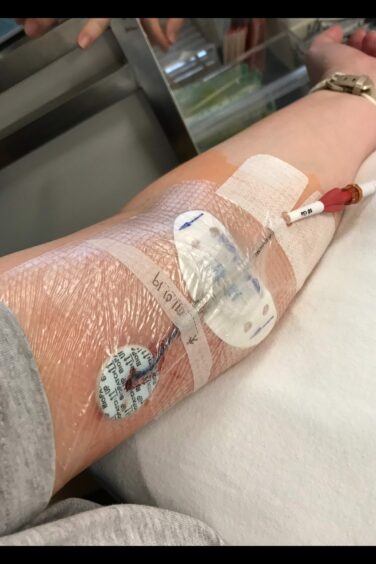
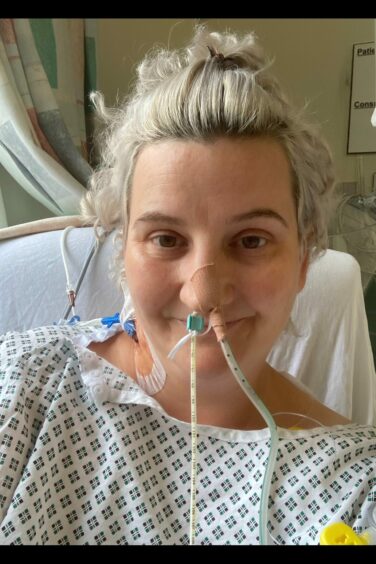
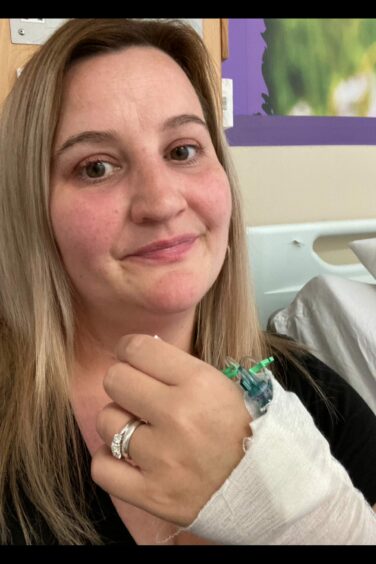
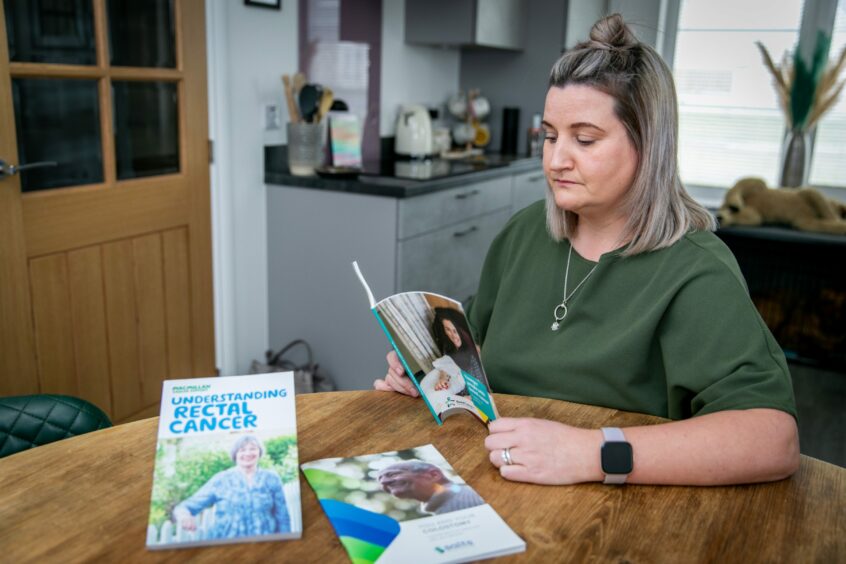
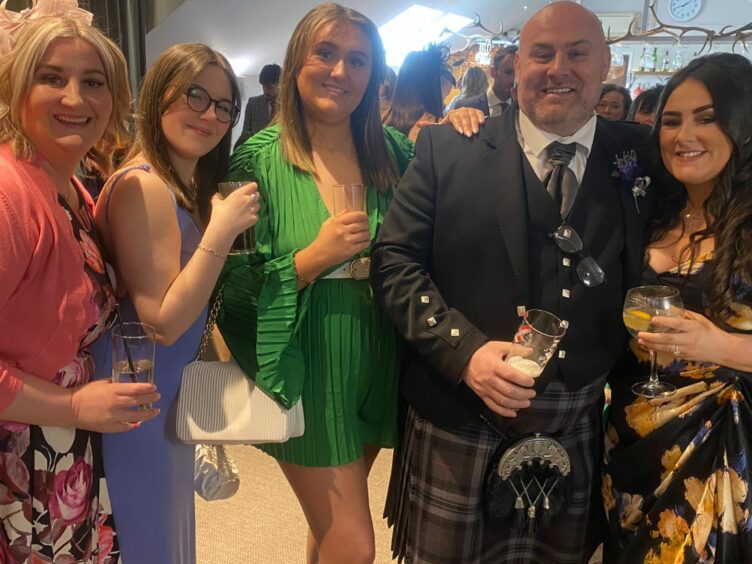


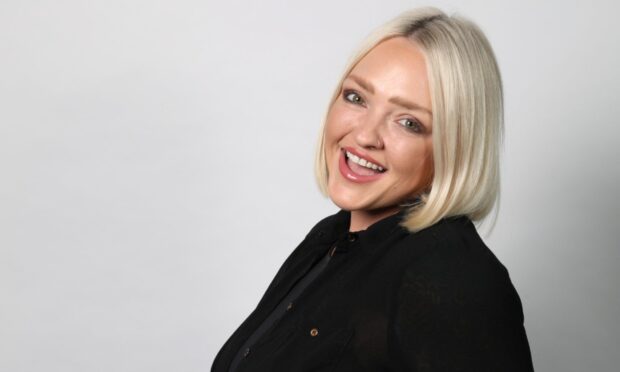







Conversation